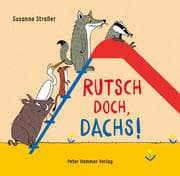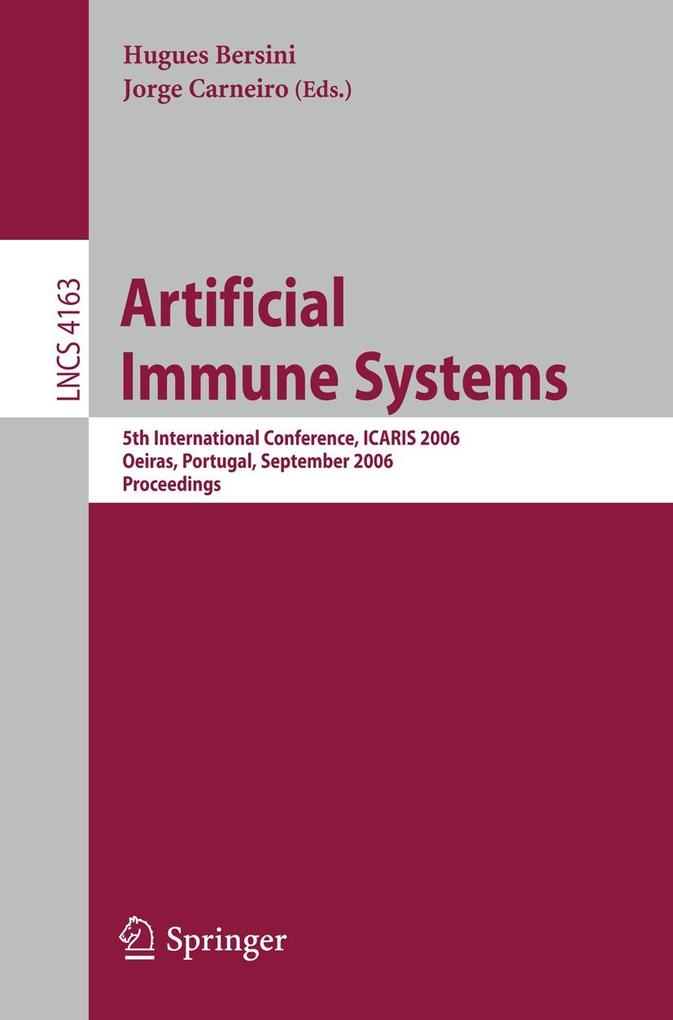ICARIS 2006 is the ? fth instance of a series of conferences dedicated to the comprehension and the exploitation of immunological principles through their translation into computational terms. All scienti? c disciplines carrying a name that begins with arti? cial (followed by life, reality, intelligence or - munesystem ) aresimilarlysu? ering froma veryambiguousidentity. Their axis of research tries to stabilize an on-going identity somewhere in the crossroad of engineering (building useful artifacts), natural sciences (biologyor psychology improving the comprehension and prediction of natural phenomena) and t- oretical computer sciences (developing and mastering the algorithmic world). Accordingly and depending on which of these perspectives receives more s- port, they attempt at attracting di? erent kinds of scientists and at stimul- ing di? erent kinds of scienti? c attitudes. For many years and in the previous ICARIS conferences, it was clearly the engineering perspective that was the most represented and prevailed through the publications. Indeed, since the o- gin of engineering and technology, nature has o? ered a reserve of inexhaustible inspirations which have stimulated the development of useful artifacts for man. Biology has led to the development of new computer tools, such as genetic - gorithms, Boolean and neural networks, robots learning by experience, cellular machines and others that create a new vision of IT for the engineer: parallel, ? exible andautonomous. Inthis type of informatics, complexproblemsareta- led with the aid of simple mechanisms, but in? nitely iterated in time and space.
Inhaltsverzeichnis
Computer Simulation of Classical Immunology. - Did Germinal Centers Evolve Under Differential Effects of Diversity vs Affinity? . - Modelling the Control of an Immune Response Through Cytokine Signalling. - Modeling Influenza Viral Dynamics in Tissue. - Cellular Frustration: A New Conceptual Framework for Understanding Cell-Mediated Immune Responses. - The Swarming Body: Simulating the Decentralized Defenses of Immunity. - Computer Simulation of Idiotypic Network. - Analysis of a Growth Model for Idiotypic Networks. - Randomly Evolving Idiotypic Networks: Analysis of Building Principles. - The Idiotypic Network with Binary Patterns Matching. - Tolerance vs Intolerance: How Affinity Defines Topology in an Idiotypic Network. - ImmunoInformatics Conceptual Papers. - On Permutation Masks in Hamming Negative Selection. - Gene Libraries: Coverage, Efficiency and Diversity. - Immune System Modeling: The OO Way. - A Computational Model of Degeneracy in a Lymph Node. - Structural Properties of Shape-Spaces. - Pattern Recognition Type of Application. - Integrating Innate and Adaptive Immunity for Intrusion Detection. - A Comparative Study on Self-tolerant Strategies for Hardware Immune Systems. - On the Use of Hyperspheres in Artificial Immune Systems as Antibody Recognition Regions. - A Heuristic Detector Generation Algorithm for Negative Selection Algorithm with Hamming Distance Partial Matching Rule. - A Novel Approach to Resource Allocation Mechanism in Artificial Immune Recognition System: Fuzzy Resource Allocation Mechanism and Application to Diagnosis of Atherosclerosis Disease. - Recognition of Handwritten Indic Script Using Clonal Selection Algorithm. - Optimization Type of Application. - Diophantine Benchmarks for the B-Cell Algorithm. - A Population Adaptive Based Immune Algorithm for Solving Multi-objective Optimization Problems. - omni-aiNet: An Immune-Inspired Approach for Omni Optimization. - Immune Procedure for Optimal Scheduling of Complex Energy Systems. - Aligning Multiple Protein Sequences by Hybrid Clonal Selection Algorithm with Insert-Remove-Gaps and BlockShuffling Operators. - Control and Time-Series Type of Application. - Controlling the Heating System of an Intelligent Home with an Artificial Immune System. - Don t Touch Me, I m Fine: Robot Autonomy Using an Artificial Innate Immune System. - Price Trackers Inspired by Immune Memory. - Theoretical Basis of Novelty Detection in Time Series Using Negative Selection Algorithms. - Danger Theory Inspired Application. - Danger Is Ubiquitous: Detecting Malicious Activities in Sensor Networks Using the Dendritic Cell Algorithm. - Articulation and Clarification of the Dendritic Cell Algorithm. - Text Mining Application. - Immune-Inspired Adaptive Information Filtering. - An Immune Network for Contextual Text Data Clustering. - An Immunological Filter for Spam.












